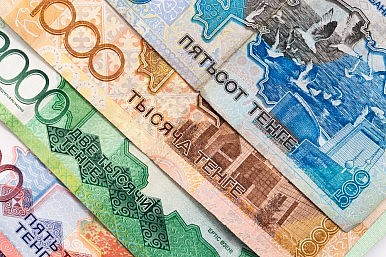 Astana has big economic dreams and hopes to follow China’s example in combating corruption. Kazakh President Nursultan Nazarbayev is in China until September 3, meeting with Chinese leaders, settling deals and joining the more than 30 heads of state attending China’s military parade commemorating the end of World War II in Asia.
Astana has big economic dreams and hopes to follow China’s example in combating corruption. Kazakh President Nursultan Nazarbayev is in China until September 3, meeting with Chinese leaders, settling deals and joining the more than 30 heads of state attending China’s military parade commemorating the end of World War II in Asia.
On August 31, Nazarbayev met with his Chinese counterpart, Xi Jinping, and the leaders of a handful of important Chinese corporations–settling a batch of deals worth $23 billion.
The trip is also serving as inspiration for the Central Asian leader, as Kazinform reports, with regard to anti-corruption initiatives. Despite China’s recent economic wobbles, its overall economic progress is undeniable and certainly serves as inspiration for Astana.
The Chinese government has spent the last three years in a deliberate fight against corruption–arresting big-name “tigers” and squashing countless “flies.” The debate continues to rage among China watchers about the intentions and ultimate impact of the country’s anti-corruption campaign, but the Kazakh president, for one, sees China as an example to be emulated.
Corruption is a pernicious problem in Kazakhstan, as it is elsewhere. To look at one measurement, Transparency International’s Corruption Perception Index, Kazakhstan falls below China. Out of 174 countries in the 2014 rankings, Kazakhstan’s 126th may be the best out of the former Soviet states of Central Asia, but it lags behind the developed economies among which the country sees its desired place.
In July, as Paolo Sorbello reported for The Diplomat, Nazarbayev gave an interview on Kazakh television that touched, among many things, on corruption. He identified the problem of corruption as a legacy issue–a vestige of the Soviet era. He cited Singapore and Malaysia as examples (though perhaps Malaysia is less of a paragon in this regard these days), and asked people to remember that he jailed the father of his grandchildren on corruption charges. From Paolo’s report:
The reference is of course to Rakhat Aliyev, who was married to Dariga Nazarbayeva until he fell from grace and was accused of the murder of two bankers in 2007. Nazarbayev wanted to make a point: “I was worried when this case came to me, but I didn’t stop for the sake of kinship” said Nazarbayev, “because there are no untouchables in Kazakhstan.” This has been true for the cases of the governors of Pavlodar, Atyrau, and Karaganda, various ministers and, lately, of the managing director of the EXPO-2017 project, which was a “very bitter pill to swallow” for Nazarbayev. “There will be no roof in Kazakhstan” said Nazarbayev, referring to the common Russian metaphor for protectors.
Nazarbayev has set his sights on pushing Kazakhstan into the top 30 global economies by 2050. Astana has to convince international investors that Kazakhstan is a good, safe bet. The first steps have already been taken in addressing both the perception and practices of corruption. Anti-corruption features in Nazarbayev’s policy plans. The five institutional reforms (creating a modern civil service, ensuring rule of law, industrialization and economic growth, unity, and transparency and accountability) and the 100 steps to achieve them mention corruption both explicitly and implicitly. Step 2 implicitly targets corruption by declaring that civil service promotions ought to be merit-based while step 3 highlights a selection process for the civil service designed to counteract corruption. Step 13 is entirely about institutionalizing the anti-corruption fight:
13. Strengthening the fight against corruption, including development of new legislation. Establishment of a special unit in the Agency for Civil Service Affairs and Fighting Corruption dealing with systemic prevention and measures against corruption.
Now, whether Kazakhstan can follow through effectively with its fight against corruption is an answer regional watchers and analysts will likely wrestle with for years to come–and perhaps never agree on. Kazakhstan could possibly get away with reforming its image among investors. But deeper reform – actually purging the country of the particular Soviet legacy of corruption – will prove more difficult. Keep in mind, we’re three years into Xi’s anti-corruption battle and still dickering over whether anything has fundamentally changed.
The Diplomat, 02.08.2015




